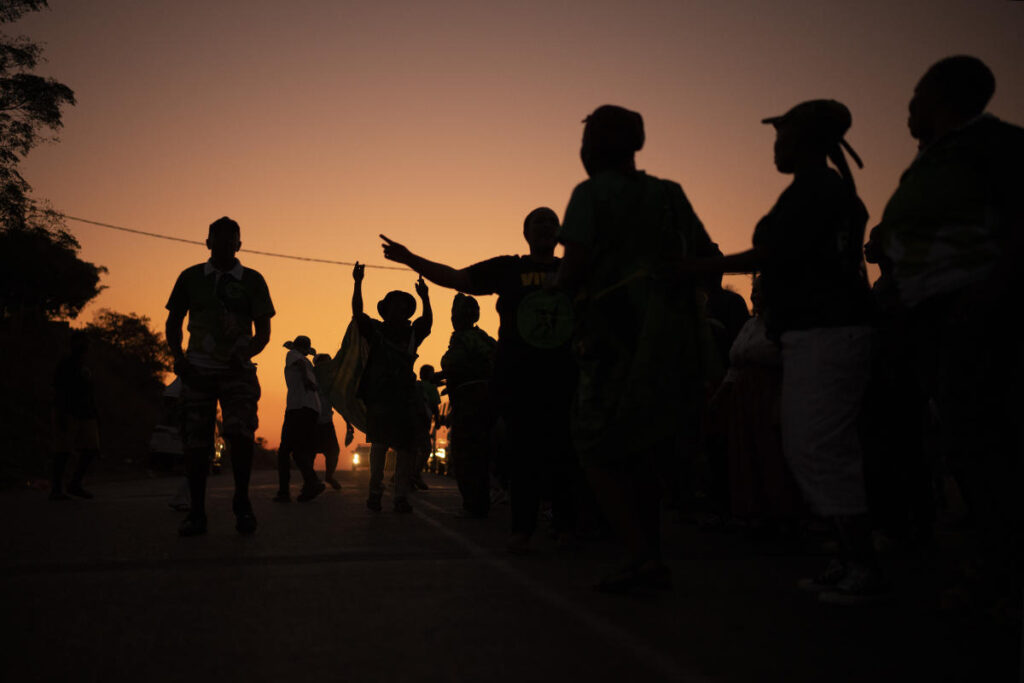JOHANNESBURG (AP) — South Africa moved closer to the reality of a national coalition government for the first time on Friday as partial election results prevented the ruling African Nation Congress from gaining a majority by a wide margin.
With more than half of the votes counted in the country’s nine provinces, the ANC had received just under 42% of the national vote, according to initial results as counting continued. That marked a huge drop from the 57.5% the country received in the last national election in 2019, although the final results of Wednesday’s election have not yet been announced.
The committee running the elections said they would be announced on Sunday, although they could come earlier.
The count of more than 12,000 of the 23,000 polling stations raised the strong possibility that the The ANC needs a coalition partner form and re-elect a government President Cyril Ramaphosa for a second and final term. The frenzied negotiations would likely begin behind closed doors.
The ANC still led the count and somehow, as expected, had the most votes main opposition Democratic Alliance party at approximately 24%. It is widely expected that the ANC will still be the largest party and have the most seats in parliament.
The ANC has enjoyed a clear majority throughout thirty years of South African democracy since the party came to power in the 1994 elections, which officially ended. the apartheid system of the white minority government, making Nelson Mandela the country’s first black president. It has been the dominant political force and if it fell below 50% it would spell disaster An important change for Africa’s most advanced economy.
The ANC’s support has steadily declined from a high of almost 70% of the vote two decades ago, as South Africa struggles with deep socio-economic problems, including widespread poverty and now one of the worst unemployment rates in the world at 32% world. Poverty and unemployment disproportionately affect South Africa’s black majority, who make up 80% of the population and have been the core of the ANC’s support over the years.
While the inequality caused by apartheid will always be difficult to solve, the ANC is also held responsible by many for the failure of basic government services, numerous government corruption scandals and most recently an electricity crisis that has led to rolling blackouts throughout the country of 62 million inhabitants. .
These elections appear to be the turning point as more South Africans choose a different party.
A government agency and SABC projection, based on voting results, estimated on Friday that the ANC would end up with just over 40%, down about 17% percentage points, which would be a stunning result in the context of South Africa. Africa.
Despite the issue, the ANC has said little about its potential coalition partners dominates South Africa’s political analysis months before the elections.
The various parties – South Africa has at least four that could be considered major parties – can now “face the reality that they have to work together” to tackle the country’s major challenges, says Joleen Steyn-Kotze, a senior research specialist. on democracy at the Human Sciences Research Council in South Africa.
Analysts say coalition negotiations will depend on the extent to which the ANC falls short of a majority in the final results, if indeed it remains below 50%. If it falls just short of a majority, it can approach several smaller parties to get past 50%. If it is still far away – as the latest results show – it might have to work with one of the two main opposition parties, the centrist Democratic Alliance and the far-left economic freedom fighters. They have very different ideologies.
The Democratic Alliance already has a pre-election agreement with several other opposition parties, with the exception of the EFF, with the mission to completely remove the ANC from government. But that group of parties would have to significantly increase their share of the vote to be able to do this.
Democratic Leader John Steenhuisen said on Election Day: “All bets are off in this election. We are on our way to a coalition country.”
___

